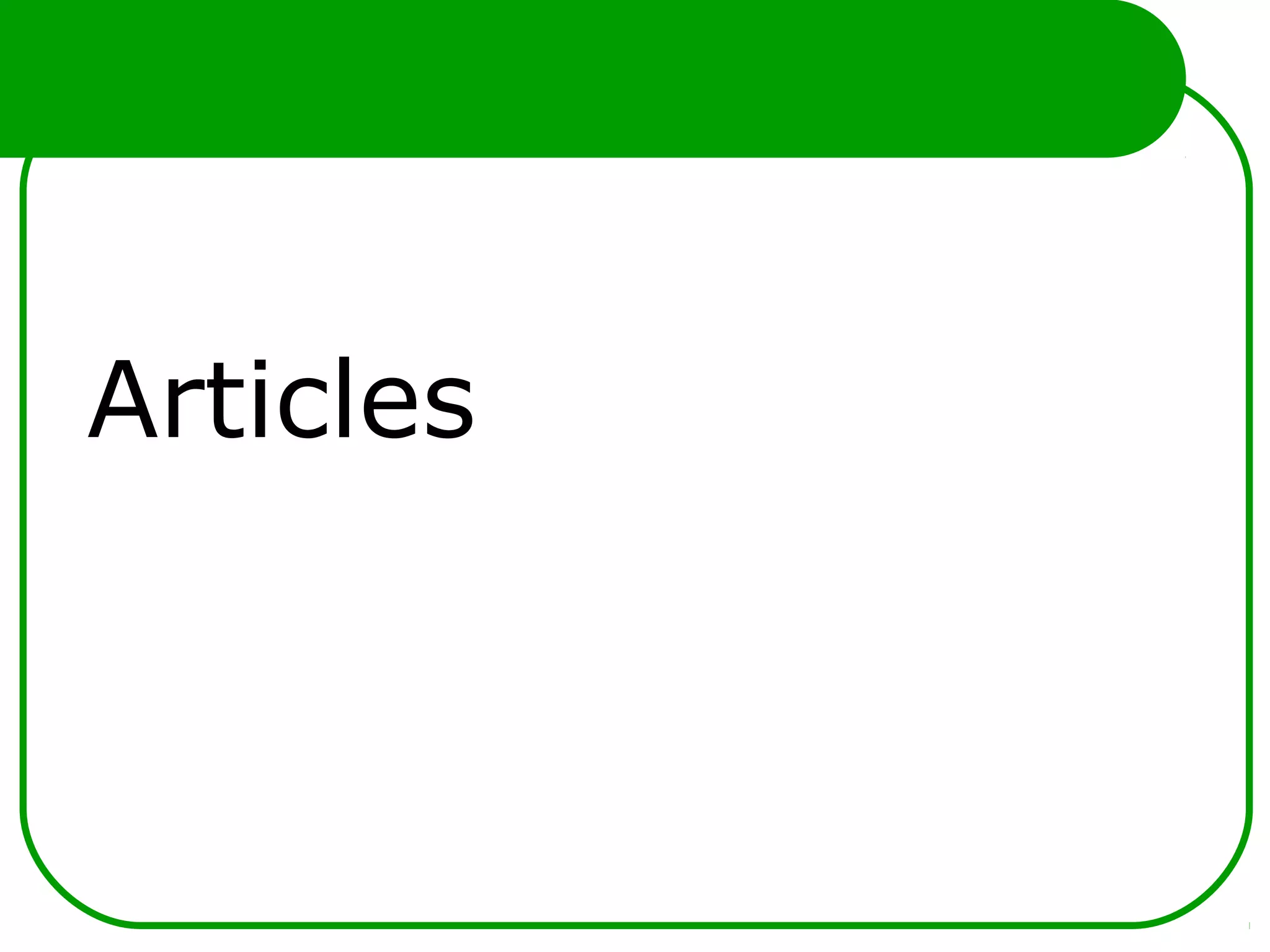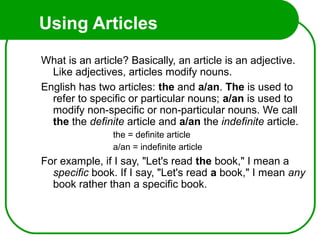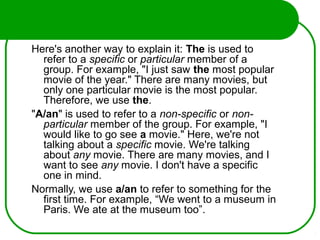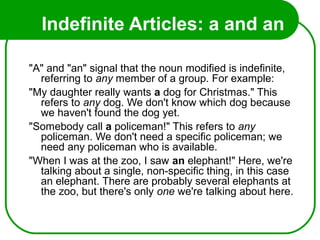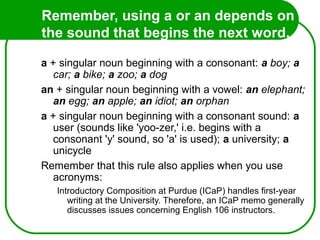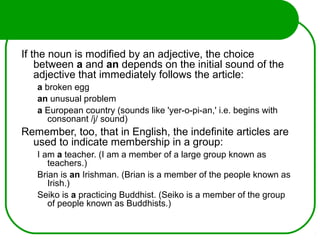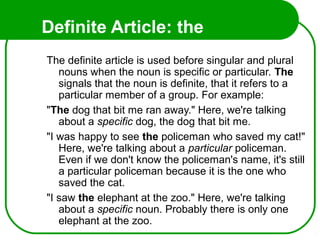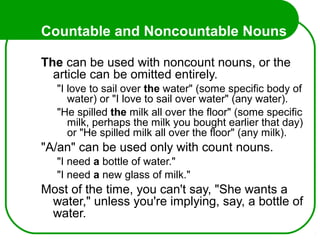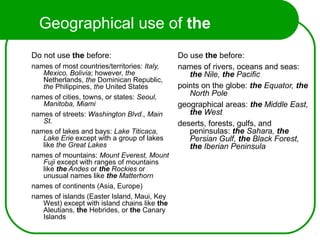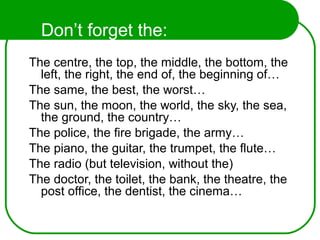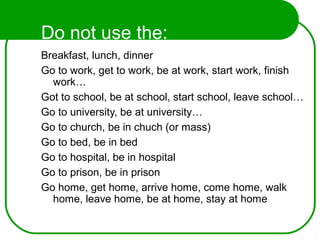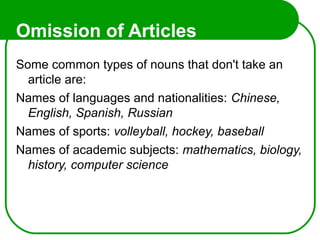The document discusses the usage of articles (a, an, the) in the English language. It explains that articles are adjectives that modify nouns and there are two types of articles: definite (the) and indefinite (a/an). The definite article refers to specific or particular nouns, while the indefinite article refers to non-specific or non-particular nouns. It provides examples and guidelines for using definite vs. indefinite articles based on whether the noun is specific, singular vs. plural, countable vs. non-countable, and whether it begins with a vowel or consonant sound.
